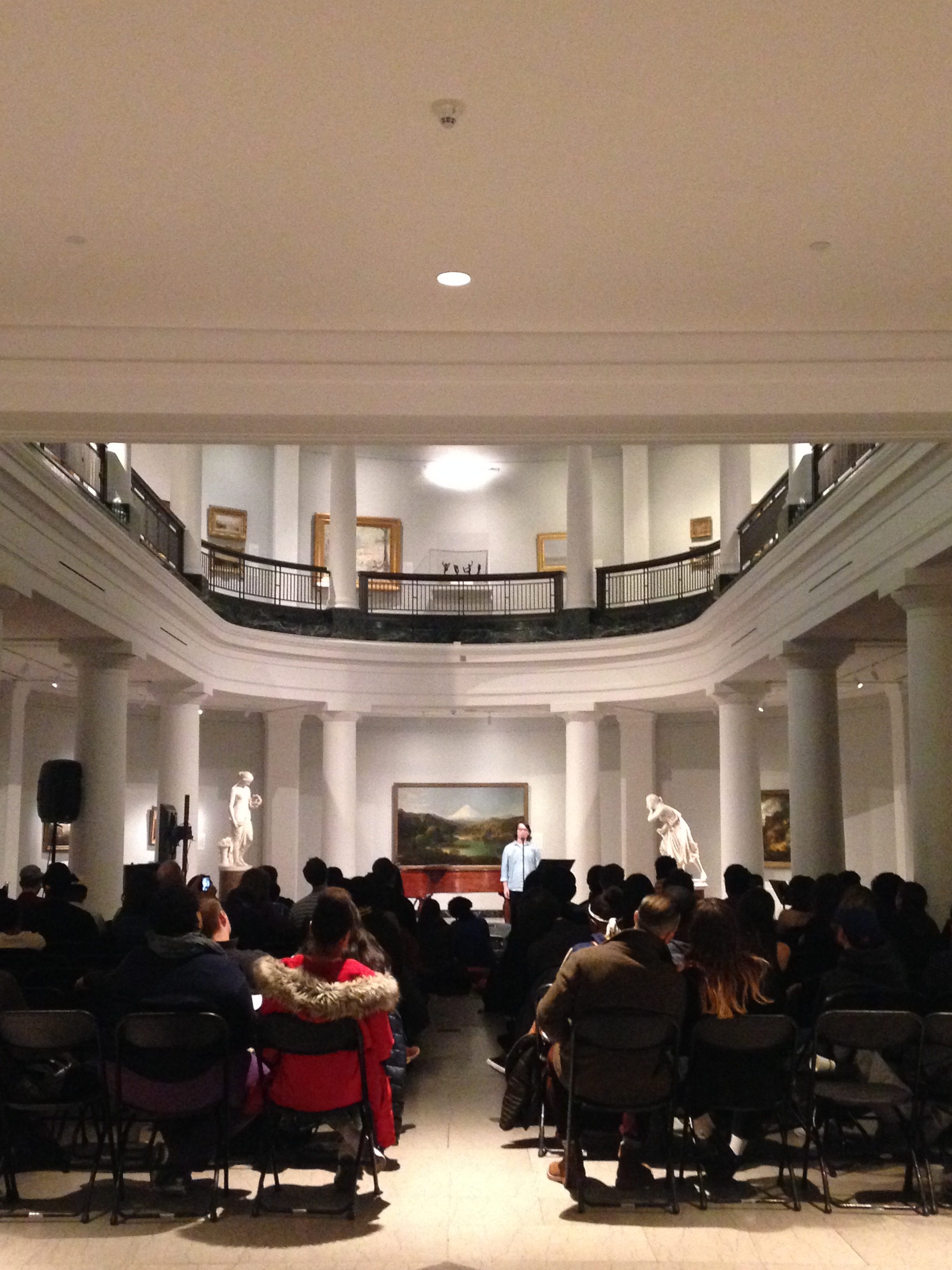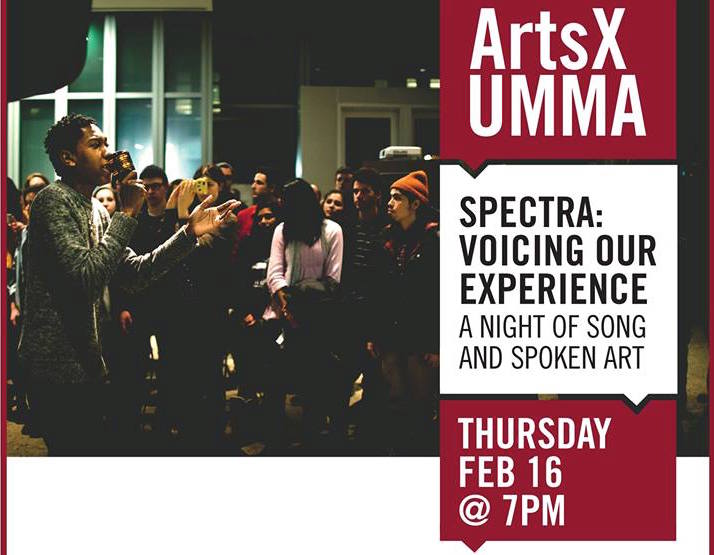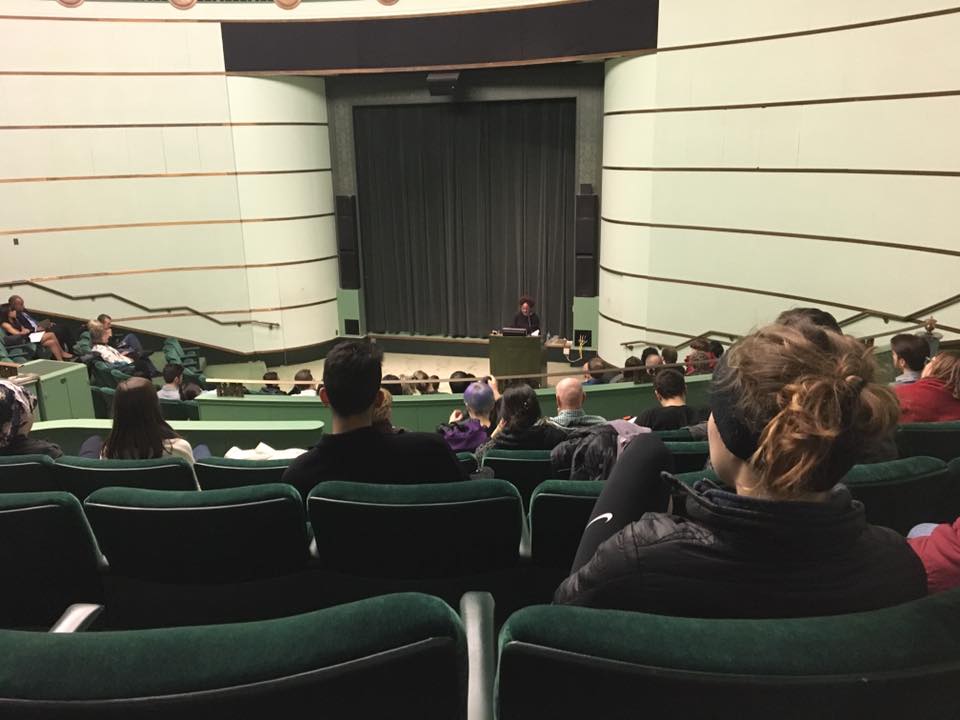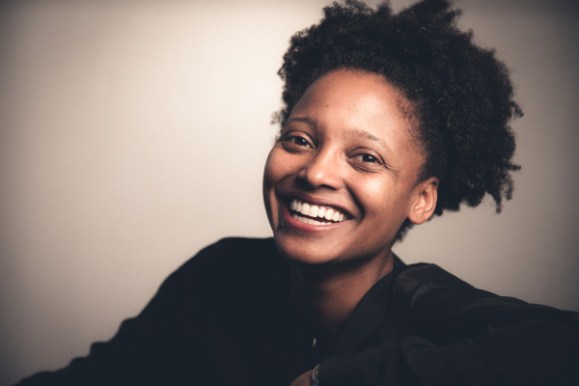Walking into the museum space, the former white, marble-esque floor was covered by carpets, pillows, and tea lights’ electronic flicker. It looks like it could be the second floor of your favorite local-coffee-shop-poetry-reading, if they too were surrounded by renowned works of art. Often, UMMA’s space can appear a bit aloof, a bit austere and refined, but for this night it was transformed into a warmer, more intimate atmosphere. People mingled in, munching away on their biscotti and hot chocolate (again, your local coffee-shop-vibes), and ArtsX opened with emphasizing the importance of sharing our experiences through the various forms of art. I loved that all the different forms of art and expression flowed together, as if they were created with the intention to work in succession. With the spoken word and poetry pieces, voices and words filled the space. Perhaps it is a bit contrived, but I liked to imagine that these intangible words, pieces of art themselves, hung in the art alongside the paintings, student contributions adding to a recording of human experience.
The first few pieces, a musical duo that may have changed my mind towards jazz music and spoken word poetry that painted a picture of the museums of the future looking make on today’s society’s mistakes, served to set the tone of students sharing their experiences and voices for other students. One of my favorite pieces of the night, an unexpected form amongst the more customary fields of song and poetry, was the work of Sarah Baruch titled Here I Am, How Did I Get Here and Where am I Going?. Chronicling her path from high school to the present, through undergrad and med school, she wove what is a common story for anyone traveling through university in a way that felt like an engaging conversation with a friend over coffee. It was saturated in her own voice and humour and caused me to think and contemplate over the inevitable moment I am standing in a similar position.
The performance was longer than most at UMMA, though that is likely just the nature of the number of performers. I never felt as though it became too long or repetitive; the constant changing and difference in performance styles kept each work feeling new and exciting. Some people chose to stay for a piece or two while others were there for the entirety; it was very much a “come as you are, go as you please” feel. If you get the opportunity to attend any performances at UMMA, I would highly recommend it on the space alone. ArtsX UMMA’s Spectra proved to stand out by its casual and inclusive nature, and I’m up for hearing other’s stories genuinely poured out anytime.









